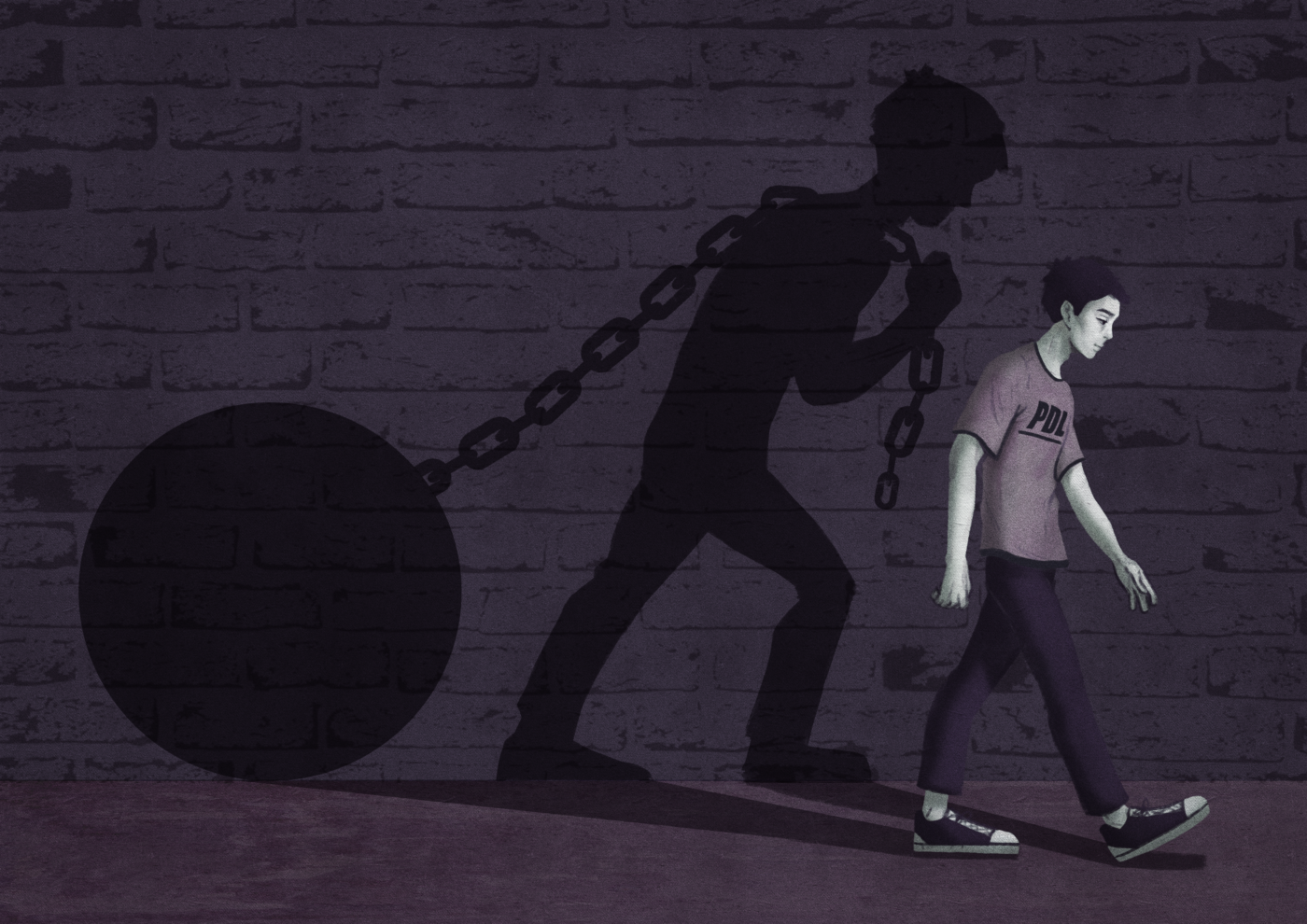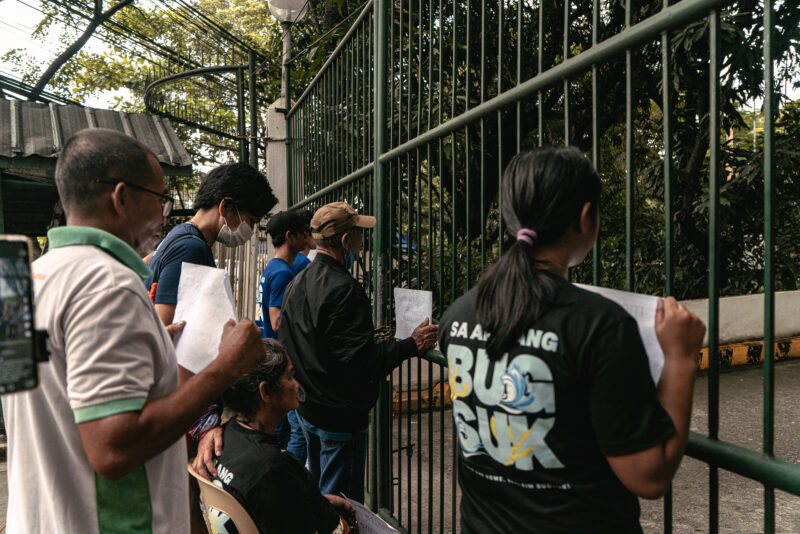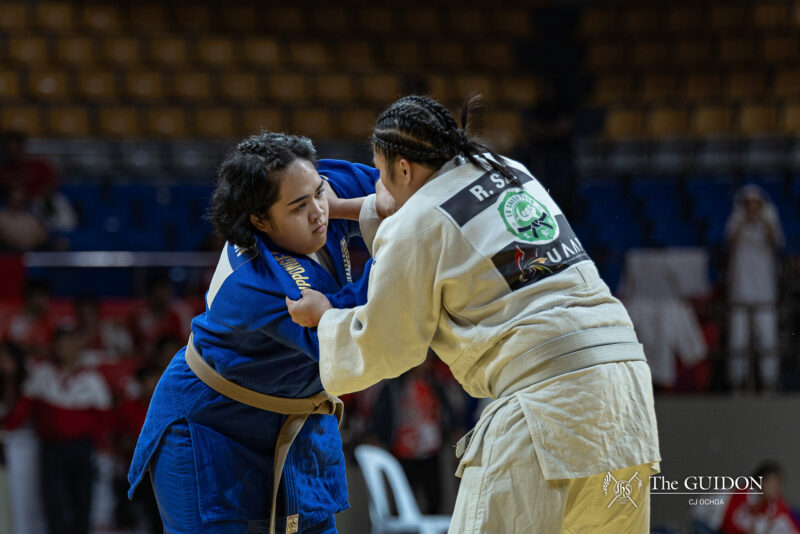Jail overcrowding and insufficient facilities dominate the PDL sector’s predicament, but their unseen pains must no longer go unnoticed.
COLD AND blue, Aey sits in the deafening silence of her ill-lit room. A former detainee, she longs for the warmth of her past barkada, after she was recently overlooked for their latest reunion despite still being in their group chat.
Such is the harsh reality that awaits most persons deprived of liberty (PDLs) outside their stifling and decrepit cells. Even after serving their sentences, PDLs continue to be imprisoned by society’s stigma against them. Today, former PDLs typically experience hardships in employment, all while they are shunned by their loved ones and battling adverse self-perceptions.
Social chains
Life within the four walls of most detainment facilities in the country is rife with complications. Aey, who was detained in the Quezon City Female Dormitory for three years, immediately felt overwhelmed by difficulties in acclimatizing to the jail conditions when she was a new convict. “Doon ko po naranasan ang matutulog ka sa loob ng banyo, hihiga ka sa sahig na puno ng ihi, puno ng tubig (That’s where I experienced sleeping inside the comfort room, lying down on the floor covered in urine and water),” she describes.
During her tenure as a health aide and trustee in the jailhouse, Aey assisted jail staff in distributing maintenance medication, cared for any fellow inmates who were ill, and had occasional access to the jail’s administrative records. Her roles allowed her to better observe overt issues such as extreme cell congestion, as well as covert ones such as the jail administration’s false reporting of food deprivation. The latter came as no surprise to starving Aey and her fellow inmates, who were reportedly living on meals smaller than peso coins.
In a similar situation herself, Kim*, another former PDL, shares Aey’s sleep-related woes, stating that the majority of the rest she got while imprisoned was fragmented due to frequent headcounts and designated activities. For family-minded Kim, the most grueling challenge of captivity is the time spent away from her loved ones. Each day she lived inside her cell, her yearning for the children she left outside only grew stronger.
Despite leaving such adversities in their cells, PDLs’ plights do not end once their sentences are completed. Free from the struggles and corrections officers’ watchful eyes, recent releasees tread the outside world in the newfound fear that society will cast them down with prejudice.
Upon Aey’s release, for instance, she felt apprehensive because of the discrimination and judgment she expected to face. “Kung ano ‘yung mga pinapanood sa loob ng pelikula, parang ‘yun din po ‘yung naka-mindset natin–yung ‘pag galing sa loob, masama [kang tao] (People commonly internalize film portrayals of inmates–if you’ve been in jail, you’re an evil person),” she expresses.
Unfortunately, such anxiety is not unwarranted. Aey and Kim were both fortunate that they did not experience any form of rejection from their immediate families. However, Aey and Kim’s once close friends did not hesitate to burn down their bridges with the former detainees once they were released from prison. Thus, Kim felt aggrieved after catching wind of her former friends cautioning one another to steer clear of her due to her “tarnished” reputation.
Such stigma associated with the PDL label also poses hurdles in their professional lives. Aey recalls a job application that went awry when the interviewer questioned the three vacant years in her resume. After deliberating whether or not she should reveal her jail time to the HR department, Aey ultimately decided to tell the truth after her interview. As she feared, HR revealed that her incarceration proved to be an unavoidable obstacle to her employment.
Helping hands
With a looming stigma awaiting them after release, former PDLs are in dire need of assistance in their reintegration into society. Bureau of Jail Management and Penology (BJMP) Jail Senior Inspector Captain Edo Lobenia, in charge of overseeing the operations of jails in the Davao Region, was moved to address this need after conversing daily with PDLs. “[I] noticed that their stories are also the stories of ordinary Filipinos, who have families… who have children waiting for them to be back home,” he expresses.
Thus, Lobenia founded Second Chance Philippines (SCP), an organization dedicated to giving employment opportunities to former PDLs by partnering with different businesses. SCP’s beneficiaries have gone on to work for spas, gasoline stations, coffee shops, and construction companies.
However, certain qualifications for applicants of these jobs remain. Thus, some detainees—prior to their release—are given the chance to undergo educational and livelihood programs under BJMP. Kim was one of them. “A-attend ka ng [Alternative Learning System (ALS)], ng school niyo kumbaga, talagang pursigido ka—kailangan mo talagang mag-attend sa lahat ng mga activity doon (You attend the ALS sessions, basically school, and you really have to be persistent in attending all the activities there),” she says.
With the help of the Department of Education (DepEd), the Bureau of Corrections brings the ALS inside jails, where many PDLs continue and finish their education. With teachers sourced through DepEd only visiting jails once a month, several PDLs are assigned as instructional managers. Having earned a college degree in nursing, Aey was able to teach Science to her fellow PDLs.
Shortly after being released, Aey and Kim then joined the Focused Reintegration of Ex-Detainees (FRED) program under the Humanitarian Legal Assistance Foundation, Inc. (HLAF). Beneficiaries undergo sessions where they are encouraged to share their problems and are then given advice about stress management and mental health.
Graduates of the program also receive a small monetary investment from HLAF. “Pwede nilang gamitin pangsimula ng maliit na negosyo tulad ng street food [stall], sari-sari store (They can use it to start a small business such as a street food stall, a sari-sari store),” Peter*, an HLAF community organizer, states.
Breaking free
Even with measures in place to help curb the impacts of the stigma against former PDLs, there is still much that should be done to help alleviate their struggles with being fully accepted by society. Lobenia believes that the persisting stigma against PDLs boils down to a lack of community awareness. He has observed that harmful stereotypes and microaggressions about detainees can be lessened if people are better informed on the realities of PDLs: their social backgrounds, the hardships they endure, and their continuous efforts to improve. “[Programs to combat the stigma against PDLs] will also, little by little, change how we see these kinds of people—that these kinds of people are also ordinary people who just committed mistakes,” he says.
Having experienced social exclusion herself, Kim shares the same sentiment. She hopes that if people encounter former PDLs, they simply ask about their situation, showing them an eagerness to hear their story, rather than make rash judgments. With a newfound sense of gratitude, she now chooses to focus on the time she has with her family, and her personal growth.
With continued assistance from HLAF, Aey is now a proud owner of a bakeshop. However, the chains of prejudice remain intact, along with the efforts to break them. “Ang mga PDL, dapat bigyan ng chance para magbagong-buhay… pwedeng magbago kung gugustuhin mismo ng tao (PDLs should be given the chance to change… change is always possible if the person desires it),” Aey expresses.
*Editor’s Note: The interviewees’ names have been changed at their request to protect their identity and privacy.







